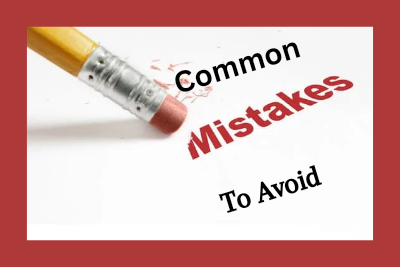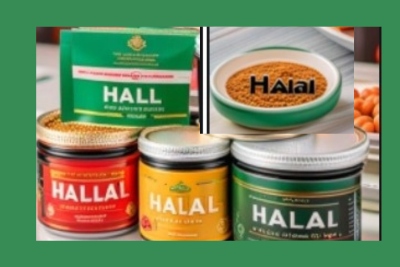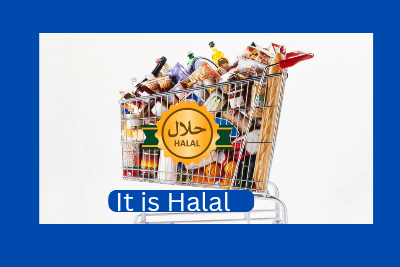
9 Business Mishaps to Avoid in your Halal Business
Are you running a Halal business or planning to start one? Halal business is one of the most promising industries in the world today, so you are in for a lucrative venture. Meanwhile, producing and labeling a product as Halal is not enough; you must follow the proper steps and avoid common business mistakes to achieve long-term success. Here are some common business mistakes to avoid when building your Halal business.
Lack of Valid Halal Certification:
One of the greatest mistakes any Halal business owner can make is to ignore Halal certification. Getting certified means gaining the trust of Halal consumers. Failure to meet or maintain Halal certification standards can lead to consumer distrust. Follow Halal product sourcing, production, and distribution guidelines to instill trust in your target audience. Register your Halal business with a legitimate Halal certification agency to be on the safe side. Furthermore, keep your Halal certifications up to date to reflect any changes in your operations and product offerings. If you need help obtaining or renewing your Halal certificate, contact ISA for immediate assistance.

Inadequate Market Research:
Ignoring market dynamics may result in products or services that do not resonate with the interests of Halal consumers. Conduct extensive market research to discover trends and understand consumer preferences to stay ahead in the Halal market. You can also use it to analyze potential competitors. Making products based on intuition without considering your customers' interests may result in lost sales opportunities.
Mislabeling and Transparency Issues:
Transparency is a critical element in the Halal industry. Accurate labeling is just as important as your Halal product. Misleading or inaccurate information about ingredients, preparation methods, or sources can break consumer trust. Make sure you clearly outline the Halal aspects of your Halal products. Give your customers every opportunity to convince themselves they are making the right choices.

Lack of Innovation and Technological Advancements:
Use technology to improve the buyer's experience and streamline your operations. Halal consumers, like any other market segment, value innovation. Failure to keep up with industry trends can lead your company to stagnation. From inventory management systems to online ordering platforms, technology can help your Halal business stay competitive and provide modern marketing strategies. Stay current to meet your customers' needs.
Inadequate Supply Chain Management:
Keep your supply chain Halal. Any flaw in the supply chain could lead to contamination or unethical practices, which can later damage your brand's reputation. Ensure that all suppliers, manufacturers, and distributors follow Halal principles. Regular supply chain audits will prevent the introduction of non-Halal elements while protecting your brand's image.
A qualified Halal certifier like ISA will set these expectations and monitor them with you as part of their regular audits and daily support.

Neglecting Digital Presence:
In the digital world, your online presence is non-negotiable. Many consumers use the Internet to research products and make purchases. Failure to develop and implement an effective digital marketing strategy can result in missed opportunities to reach a larger audience. A user-friendly website, social media participation, and effective digital strategies are essential for your Halal business. Use social media, e-commerce platforms, and a user-friendly website to reach and engage your target market. A solid online presence and efficient processes can boost your company's visibility and competitiveness.
Neglecting Social Responsibility:
Halal businesses are not only to produce ethical products but also to contribute positively to society. Go beyond products. Engage in socially responsible initiatives that align with Halal principles, such as supporting charitable causes or environmental sustainability. Strengthen your brand image by contributing positively to society and publicizing these efforts.

Overlooking Cultural Sensitivity:
Neglecting the cultural differences of your target market can cause misunderstandings and even backlash. Cultural sensitivity is a vital part of running a successful Halal business. Understand the diverse cultures of your audience. Tailor your marketing approach and products to resonate positively with people from different backgrounds. Ensure your marketing messages, packaging, and overall branding cater to buyers with diverse cultural backgrounds.
Poor Marketing Strategy:
Avoid the mistake of poor marketing strategy by not clearly communicating your brand's values and unique selling points. Improve your brand identity through marketing plans, offers, and customer support services. Create a strong brand identity for your Halal business through effective marketing. Use digital marketing channels and social media to reach a larger audience and build a Halal community around your offer. Finally, collaboration is another way to boost your Halal business success. Don’t walk alone; associate with different Halal groups and social media forums to know and learn how it works.

Succeeding in the Halal industry requires a strategic and thoughtful approach. It needs a careful balance of business principles, sales skills, and Halal market understanding. Be unique in your marketing and make your audience's interest a priority. Avoiding all the mentioned business mistakes will set your Halal business up for long-term success and growth.
Islamic Services of America (ISA) is a leading USA based Halal certification and auditing organization serving companies, the community, and the Halal certification industry for nearly 50 years. Contact ISA at isa@isahalal.com to Halal certify your products or visit the ISA website for more information at https://www.isahalal.com/
picture credit: www.canva.com